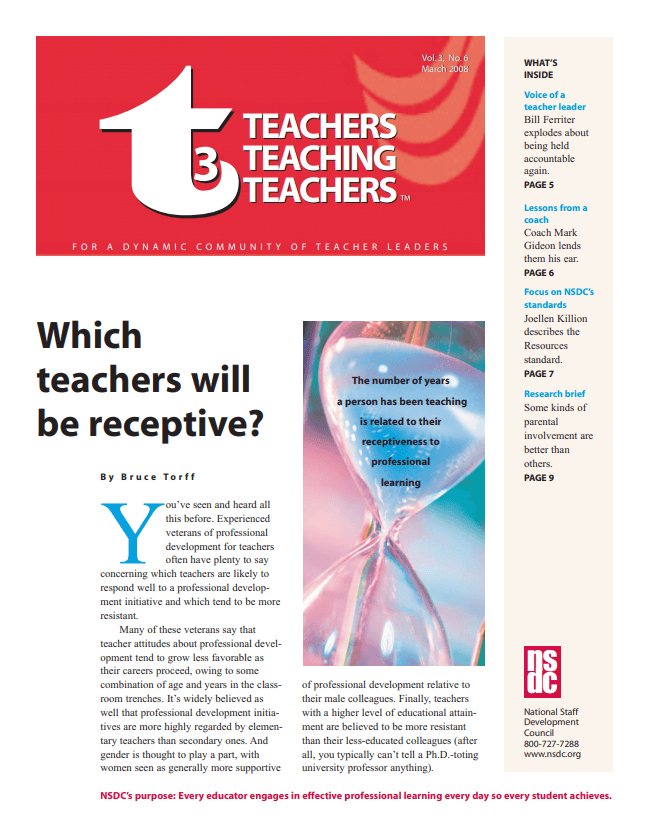
Teachers Teaching Teachers, March 2008, Vol. 3, No. 6

Which teachers will be receptive?
The conventional wisdom says that certain teachers are more likely to be receptive to professional development than others are. For example, we expect elementary school educators to be less resistant to reforms and we expect those with higher levels of education to be more resistant. However, research doesn't always bear out our assumptions. Read what researchers have learned about teacher attitudes towards learning opportunities and explore implications for school-based leaders.
By Bruce Torff
Voice of a teacher leader: Accountability lights a fuse
This teacher leader has had it! He's been held accountable one too many times, signed one too many forms, cowered under one last set of disappointing test scores. Ferriter isn't the only teacher to suffer what he terms an "accountability breakdown." He asks us to consider what accountability measures are doing to the educators on the front line.
By Bill Ferriter
Lessons from a coach: Help them draw from inside
Mark Gideon has been an instructional specialist in Springfield (Mo.) Public Schools for five years. Learn what strategies Gideon relies on to help teachers get the most from their inner resources, to develop answers that work for them.
Focus on NSDC's standards: Not a cost but investment
NSDC Deputy Executive Director Joellen Killion urges schools to think of the money devoted to professional development in a new way. Rather than seeing professional development as an expense, look it as an investment. Learn how this change in perspective can not only improve the amount of resources available for professional learning, but also the quality of the experiences available to teachers. (Available to the public.)
By Joellen Killion
Research brief: Certain parental help worksFindings from a recent study suggest that while it is true that parental involvement can promote student academic success, some types of involvement are more helpful than others. Read more about this study, which looked particularly at schools that serve low-income, at-risk populations. The researchers offered specific recommendations to assist schools in making the most out of the information gained in this study. |

